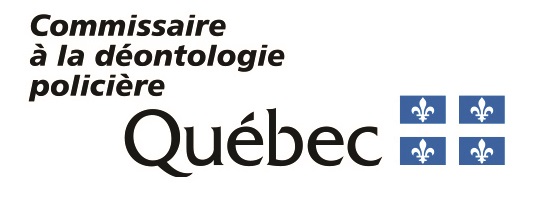File a complaint
Communication With the Parties Involved
Communication With the Parties Involved
During the investigation, we will communicate at certain times with the various parties involved.
The complainant
- First contact with the investigator. The complainant will be contacted by the investigator who will explain to them what to expect and what is expected of them.
- Investigation meeting. If the complainant is personally involved in or witnessed the event that is the subject of their complaint, the investigator will probably want to meet with them to ask questions and take their statement about the event.
- Notice under investigation. We will notify the complainant of the status of the investigation no later than 45 days following the decision to order an investigation and thereafter, if necessary, for the duration of the investigation.
- Notice of end of investigation. When the investigation is over, the investigator finalizes their investigation report and submits it to the Commissioner. The latter can then request a further investigation if necessary.
- Decision after investigation. The Commissioner analyzes the investigation report and decides whether there is enough evidence in it to cite the persons targeted by the complaint before the Comité de déontologie policière. If not, then the complaint is dismissed. In all cases, a written decision is sent to them.
- Request for revision possible. If the complaint is dismissed after the end of the investigation and the complainant does not agree with the reasons, they have the possibility of requesting a review by addressing it to the Comité de déontologie policière.
The director of the police service or the peace officer's employer who is the subject of the complaint
- Notice during investigation. The director is notified of the status of the investigation no later than 45 days following the decision to order an investigation and thereafter, if necessary, for the duration of the investigation.
- Decision after investigation. After the investigation, the Commissioner analyzes the report and takes one of the following two decisions:
- To dismiss the complaint;
- To cite one or many peace officers to appear before the Comité de déontologie policière. In any case, the decision will be sent to the director.
Any police officer or peace officer who is the subject of the complaint
- First contact with the investigator. The Commissioner's investigator contacts the police officer or any other peace officer concerned to find out whether or not they intend to cooperate in the investigation. Before making their choice, the person concerned may contact the investigator to find out more about the investigation that concerns them.
- Investigation meeting. If the subject of the complaint wishes to meet with the investigator, they will have the opportunity to do so.
- Notice under investigation. They are notified of the status of the investigation no later than 45 days following the decision to order an investigation and thereafter, if necessary, for the duration of the investigation.
- Notice of end of investigation. When the investigation is over, the investigator finalizes their investigation report and submits it to the Commissioner. The latter can then request a further investigation if necessary.
- Decision after investigation. The Commissioner analyzes the investigation report and decides whether there is enough evidence in it to cite the persons targeted by the complaint to appear before the Comité de déontologie policière. If not, then the complaint is dismissed. In all cases, a written decision is sent to them.
<< 3. Investigation 4. Citation >>
File a complaint
Need help?
If you want more information or if you need help drafting your complaint, you can contact us.
deontologie-policiere.quebec@msp.gouv.qc.ca
